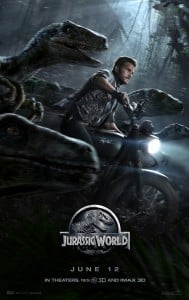After reading some early negative reviews, I was pleasantly surprised by Tim Burton’s latest.It’s becoming more and more clear that Burton, despite his fetish for the phantasmagoric, is not so much a storyteller as a stylist. And Charlie and the Chocolate Factory gives him a big, bold framework across which he can drape his latest outrageous decorations.
It’s a challenge to take a story about people who do little more than tour a building and turn it into something consistently entertaining. But Burton’s done it, and better than it was done in 1971. It has some moments that teeter on the edge of tedium, as Wonka guides his admiring guests around and explains his whimsical inventions to them. But the effects are a hoot. The casting ranges from good to brilliant… especially David Kelly as Grandpa Joe and Freddie Highmore as Charlie. Deep Roy deserves some kind of award for what must have been a trying role, performing all of the necessary Oompa Loompa tasks. Perhaps the biggest surprise of all is that the film is as good when Depp leaves the screen as it is when he’s on it. In fact, the opening scenes in Charlie’s ramshackle home are fantastic.
And Johnny Depp, while a far cry from Dahl’s version of Wonka, creates another entirely unique character. His version of Wonka struck me as just as a man who never matured past the point of the fractured child he was when he ran away from home. Given the new back-story Burton’s invented for him, that makes sense.
Personally, I’ve never been convinced that Dahl gave us enough story to fill out the frame of a fully satisfying feature film. Thus, I don’t mind Burton’s embellishments on the life of young Willy Wonka so much. I think Burton makes it pretty clear, right up front, that this is a sort of thematic sequel to Edward Scissorhands–the first time we see Depp turn and face the camera, he’s weilding a pair of scissors.
Like Edward, Wonka lives in a castle on a hill. But unlike Edward, Wonka’s doesn’t have a benevolent bone in his body. He’s the American dreamer… self-indulgent, pursuing only his own appetites, like the beastly children who abuse his generous offer of a tour. He finds, in the end, that even though he never had a loving family of his own, his only route to happiness is to find one… and to deal gracefully and forgivingly with the unfortunate damage that’s been done to him. Sure, this is a whole new lesson for the Wonka story, but it’s not a bad one at all. In fact, it’s a revision of the lesson of Burton’s last film, Big Fish. That film ended by justifying the self-indulgence of its central character, saying it’s alright to escape into irresponsible fantasies, even if you hurt those around you, because fantasy will earn you immortality. Burton’s Chocolate Factory suggests that sometimes our fantasies can turn us into selfish fools; sometimes its better to make room for some reality; sometimes we should pursue not what we want, but what we need.
Finally, I’d like to say that I’m happy to see another mainstream entertainment affirming the direct connection between parental irresponsibility and damaged child psyches. The film is in no way subtle, but that’s okay for something as deliberately cartoonish as this. Sometimes a deaf culture needs to have its head stuffed into a megaphone while someone shouts the truth through it.












